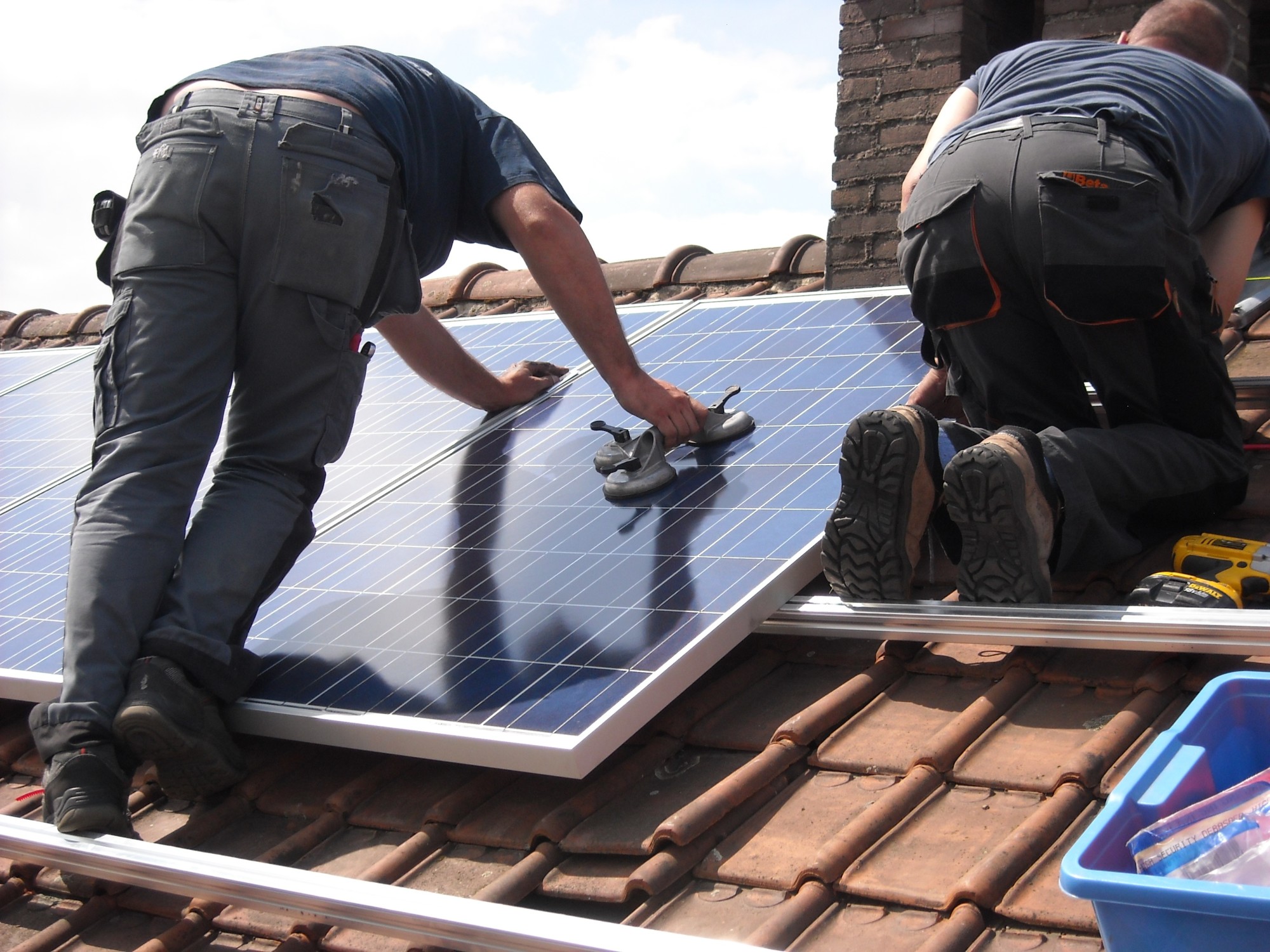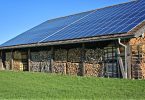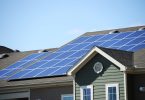The average American household spends $1,360 each year on electricity. It uses 10,715 kWh of power, and it spends a little over $0.12 per kWh. And, depending on the source of that power, household electricity may cost the environment even more than it costs the homeowner. That’s why many Americans are considering switching to solar power. Solar power systems can give you clean, renewable energy that’s entirely off-grid—bringing that yearly expense down to $0. But, the initial cost of installing solar panels can be steep.
Fortunately, with a little budgeting, many American households can fray the initial costs. Discover how to save money on solar panels, and how to save up for them, in this quick guide to home budgeting.
What Are Home Solar Panels?
Home solar panels receive heat (thermal) and light (radiation) energy from the sun. Then, they interact with electrons to convert that energy into electricity. This electricity can then power your home and electric car.
Types of Solar Panels
There are three general types of solar panels on the market. These are:
- Monocrystalline panels
- Polycrystalline panel
- Thin-film panels
Monocrystalline panels have the greatest efficiency. They also cost the most. Polycrystalline panels are less expensive, and they’re less efficient. Polycrystalline panels aren’t always an option in cooler, cloudier regions.
Thin-film solar panels are a newer invention. They are typically less efficient than monocrystalline panels. But, they’re more portable and flexible.
Read and research to determine which type is right for your home. Availability may also be a factor.
What’s the Typical Cost of Installing Solar Panels?
Solar panel installation costs vary. The size of your home, the state you live in, and the types of panels you choose, each factor into the price.
6-KW solar panel systems typically range from $13,000 to $17,000. Many homes start with a 6kW system, although that’s not enough for larger homes.
5 Budgeting Tips to Afford for Solar Power
Even if you choose the cheapest panels on the market, a solar installation can still be expensive.
But, before you decide it’s not for you, look into a few ways to get a discount on the price.
Federal and state governments run programs that give discounts, rebates, and grants for solar power installation. Many are listed in the Database of State Incentives for Renewables & Efficiency (DSIRE). Consider these options:
- FHA PowerSaver loans
- State rebate programs (like SolarSense in Minnesota)
- Federal Solar Investment Tax Credit (ITC)
- Green retrofit grants
Unfortunately, even with rebates, solar panel installation can still be costly. Fortunately, most people can save money—and earn more—with these budgeting strategies and tips.
1. Save Money on Food
To save money on food, the first step is to eat out less. Restaurant meals can add up! Instead, limit restaurants and pizza runs to the “entertainment” section of your budget.
Buy staple groceries in bulk at discount grocers. Then, you can spend more of your grocery budget on the ingredients that make food truly enjoyable: fresh fruits and vegetables, spices, and deli items.
When grocery shopping, double up your savings. Use cash-back apps and coupons to get the best price on goods. Apps like Ibotta sometimes have cash-back coupons that make the item free after purchase.
2. Spend Less on Utilities
There are plenty of ways to spend less on different utilities.
In addition to cost-saving measures, consider applying for assistance programs like LIHEAP or TANF. Families don’t always need to be under the federal poverty line to qualify for assistance.
Water
The biggest way to cut down your water bill is to use the water less.
Supplement utility water with collected rainwater. Learn how to use rain barrels and filtration tools to make rainwater safe to bathe in and drink.
You can also use less water in everyday tasks. Only run washing machines and dishwashers when they’re full, so you can run fewer cycles. When you brush your teeth, don’t leave the water running.
Heat
Cut back on heat expenses by setting the thermostat to a lower temperature. To stay comfortable at this temperature, prevent warm air from escaping outside. And, keep all the warm air flowing into your home. To do this, try:
- Sealing any leaks in your HVAC system
- Keeping the HVAC air filter cleaned and replaced as needed
- Insulate your walls and ceilings effectively
- Seal windows and doors with weatherstripping, clear plastic cover
- Use a space heater that runs on a solar-powered battery
Solar-powered space heaters can run before you install a full-fledged solar power system.
A/C
To spend less on air conditioning in the summer, use some of the same tactics as you might to cut heat expenses. Weatherstripping keeps the cold air in as well as the hot. A well-maintained HVAC system won’t lose anything.
You can also skip the air-conditioning if it’s safe to do so. Stay cool with iced drinks, gel cool packs, and even a cooling blanket instead.
Electricity
To save money on electricity, use energy-saving lighting and appliances. Consider a smart power strip that automatically cuts the power to devices you aren’t using.
You can also check your fridge and freezer temperature settings. If they’re too cold, turn them closer to room temperature.
Phone, Cable, Internet
The phone, cable, and internet bills can break your budget.
To save money, try switching to a budget mobile plan. Brands like Mint Mobile, Tello, and Visible cost less than plans from large brands like Verizon.
You might also consider “cutting the cord” on cable. Many of your favorite TV series are available through streaming services like Hulu or Netflix, which are cheaper each month than cable services.
To save on internet service, look into eligibility for the Affordable Connectivity Program. This is a federally-funded program, and you can learn more about it at the ACP website. Many different types of people qualify for discounted internet.
3. Pay Less for Housing
To pay less for housing, consider renting out a spare room in your home. This could mean subletting to a new housemate, or it might mean listing the room on Airbnb for travelers.
You can also refinance your mortgage. This is a way to make your monthly payments cheaper.
4. Cut Your Transportation Costs
To cut your transportation costs, first and foremost, drive less. Instead of driving and spending a lot on gas and wear-and-tear on your car, try less expensive options. This can include:
- Using public transportation
- Biking or using an electric scooter
- Bartering for rides through sites like TimeBanks
- Using a carpool app
When you do drive, you can still save money. You might sign up for a fuel rewards card, which can give you cash back on every dollar you spend on gas or discounts on groceries.
You can even sell or trade-in your car. Replace it with a car that gets better gas mileage. Or, simply cut down on the number of cars you own.
5. Increase Your Income
Finally, the best thing you can do for your budget is to increase your income. You can increase your income passively by saving money in a high-yield savings account. The best savings accounts offer an APY of 0.50% to 0.90%.
Another passive income strategy is investing in the stock market. It’s easier than ever for beginners to invest. You can use an app that makes investment decisions with an algorithm, like SoFI or WealthSimple.
You can also take on a side hustle. A side hustle is less time-intensive than a second job. It involves taking “gigs” as you’re able to. Gigs can be anything from writing to walking people’s dogs.
Discover Solar Energy Information—and Savings—Right Here
The cost of solar panel installation gives plenty of homeowners “sticker shock.” But, if you take advantage of rebates and budget strategically, solar power is attainable.
Looking to get started? Contact us for free estimates of how much you could save with solar energy. Or, browse our directory of solar energy providers near you.






